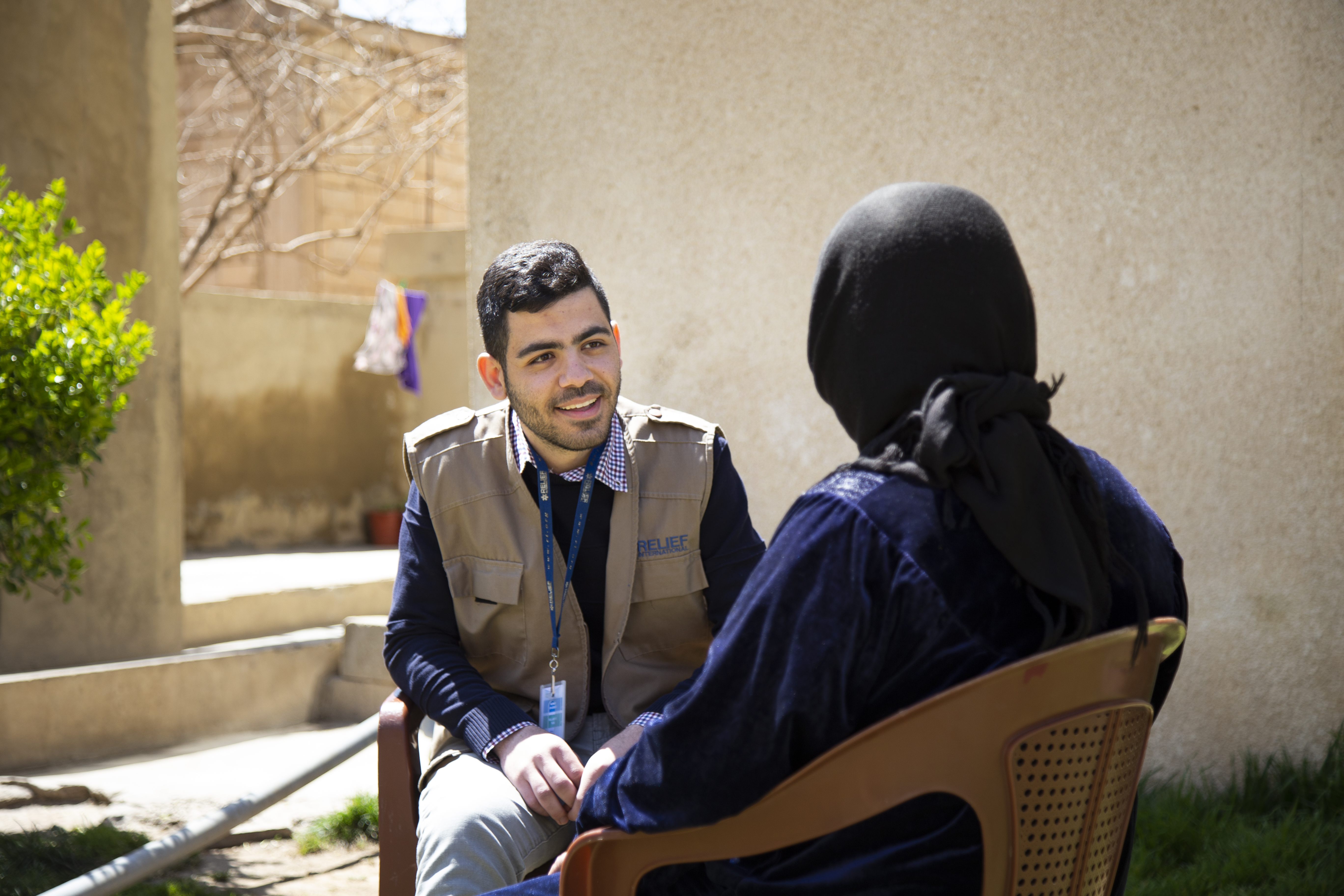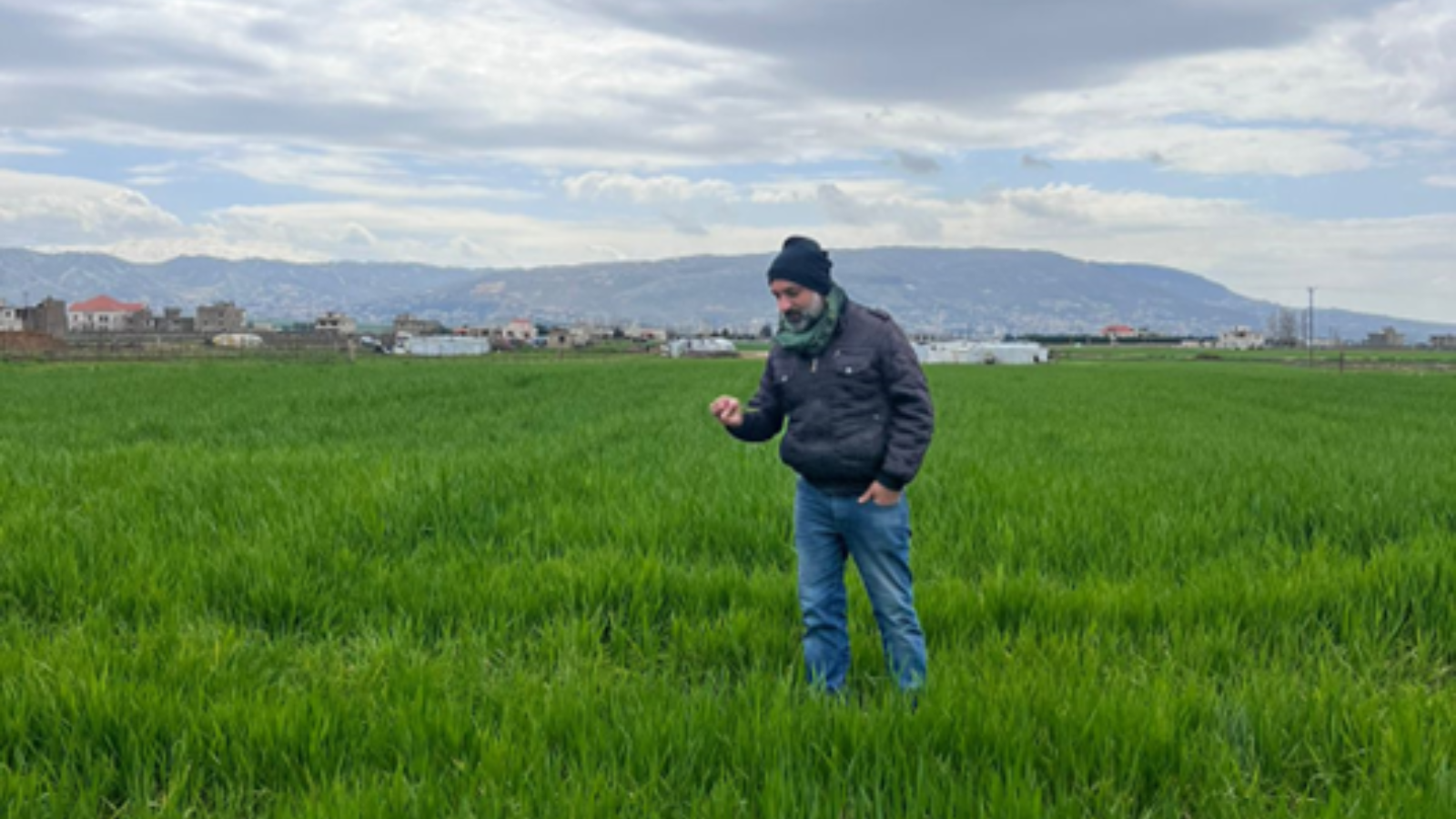In the small town of Mansoura in West Bekaa, Lebanon, Jerjes works as a fodder farmer, cultivating wheat that is used for animal feed.
Farming wheat in this region is incredibly tough because of significant water waste, high costs, and a lack of soil testing. This often means farmers only make small profits on their yields, and sometimes make no profit at all.
As a result, when Jerjes heard about an agricultural training program being run by Relief International that could help increase his yields, he was quick to sign up.
“In the vast fields of agriculture, the wise farmer is not just a cultivator of crops but a seeker of knowledge”, says Jerjes.
The RI training sessions equipped Jerjes with valuable information about good agricultural practices, agricultural calendar awareness, the nutritional value of fodder crops, harvesting effectively, fodder storage, and pest control. This information was key to optimizing his farming practices, increasing his profits by 30%.
Beyond the training, RI also offered extension services, such as a soil test conducted by an specialist. The results of the soil test guided recommendations for Jerjes on how to enhance soil health, boost crop productivity, and promote sustainable fodder cultivation practices.
“The knowledge and skills I gained during the training have been invaluable, and I am already witnessing positive changes in my farming practices.”
Prior to participating in RI’s technical training, Jerjes harvested 600 kg of wheat on average per 1,000 square meters. Following RI’s training, he now yields over 900 kg.
Looking forward, Jerjes is excited about the prospect of using the knowledge he has gained to contribute meaningfully to the agricultural community.
"I want to share what I've learned, use sustainable methods, and help my fellow farmers. That's what I'm aiming for in my journey."
The ‘Livelihoods and Resilience Support to At-Risk Lebanese and Syrians’ project is funded by BMZ with the support of the World Food Programme and implemented by Relief International. The intervention aims to promote the active participation of women and at-risk populations in their communities with the ultimate goal of improving their livelihoods and food security.

Support our vital work today
Your support can help improve lives in communities affected by crises.
